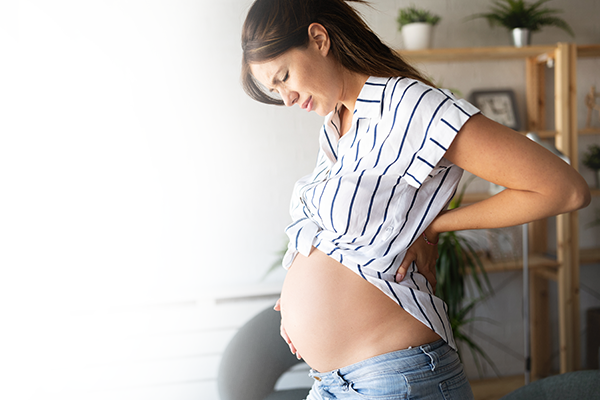Almost every expectant mother complains about the unpleasant discomfort caused by burning in her esophagus. For some pregnant women, heartburn occurs early in pregnancy and intensifies in the second and third trimesters. The annoying burning sensation can be easily tamed without harming the baby. It is enough to change your eating habits.
There are many culprits of heartburn during pregnancy. You are guilty not only of hormonal disorders in the female body, but also of improper lifestyle and daily diet. Although the options for treating heartburn due to pregnancy are limited, you can take control of it. It is worth knowing if taking heartburn medication is safe for a pregnant woman.
Heartburn during pregnancy – why it occurs
A nuisance for the expectant mother is caused by several factors. One of them is progesterone, which lines the lining of the uterus. When it grows, it relaxes the smooth muscles of the gastrointestinal tract, and therefore food enters the esophagus. As a result, an expectant mother may experience heartburn in early pregnancy. Mild heartburn at the beginning of pregnancy is not yet so troublesome. It can be alleviated by changing eating habits.
Heartburn symptoms:
- Persistent burning in the esophagus or throat
- Pain in the chest
- A sour taste in the mouth
- Constant ups and downs
- Vomiting
Heartburn during pregnancy is aggravated by a poor diet. It is especially unpleasant when the expectant mother eats a lot of fatty and spicy food and puts pressure on the stomach in the 2nd and 3rd trimesters, when the uterus is dilated. One solution to the problem might be to position yourself lying on your left side. The pressure is then less and the sour taste in the mouth is not felt as strongly.
Ways to manage heartburn during pregnancy
If a woman doubts whether it is safe for her and her baby to suffer from heartburn during pregnancy, she should talk to her doctor or pharmacist. It is not advisable to take medication on your own. Specialists will help you choose heartburn medications during pregnancy that do not pose a risk to your baby’s health. Aluminum-based lotions are the most commonly used and the safest. These types of substances also contain tablets for heartburn, which can be taken several times a day during pregnancy.
Annoying discomfort can be relieved by using home remedies for heartburn during pregnancy. These may be herbal teas such as chamomile or mint. Ginger root infusions, ginger cookies or adding ginger to foods are also recommended for heartburn. Pregnant women need to know that they can eat ginger root as long as they do not have high blood pressure during pregnancy.
Baking soda is also useful. One teaspoon should be dissolved in a glass of boiled water. Baking soda for heartburn during pregnancy is often used, but should not be abused. Indeed, excess substance in the body causes diarrhea.
Another method is a glass of water with a spoonful of apple cider vinegar and a spoonful of honey. The solution should be drunk when the first symptoms of heartburn appear. In emergency situations, you can also eat a handful of almonds. They have a stimulating effect on the hydrochloric acid in the stomach.
The key element in eliminating heartburn during pregnancy is diet. The expectant mother should avoid fatty or spicy foods that increase gastric juice secretion. Meals should not only be easily digestible, but also small and frequent. Excessive food intake is completely discouraged.
To avoid heartburn, you should also avoid:
- Overeating in the evening
- Sweet with high fat content
- Smoking (it should be obvious in pregnancy, but unfortunately some mothers do it)
- Tight clothes
- Sleeping in the wrong position (e.g. too low)
You can also drink milk, natural buttermilk, kefir or yogurt for heartburn during pregnancy. They have an immediate effect on the burning sensation in your esophagus. Flaxseed, which has the property of coating the stomach lining and relieving discomfort, will also work. They can be drunk with milk and honey.
Many women wonder if heartburn can be a sign of pregnancy. The condition should not be treated as a sign of fertilization. Progesterone also increases in the second half of the cycle and the same symptoms may occur. Heartburn may also be a symptom of reflux, which is a condition associated with the withdrawal of food contents into the stomach and should be treated.










